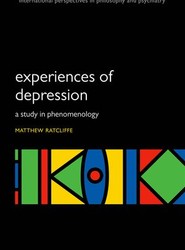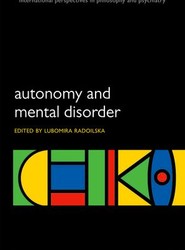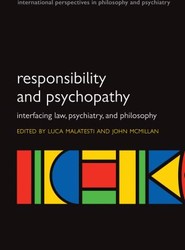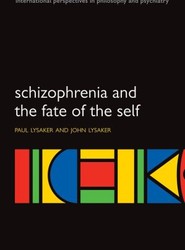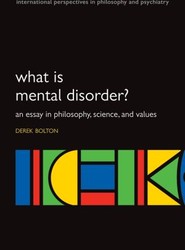(To see other currencies, click on price)
MORE ABOUT THIS BOOK
Main description:
Mental health research and care in the twenty first century faces a series of conceptual and ethical challenges arising from unprecedented advances in the neurosciences, combined with radical cultural and organisational change. The Oxford Textbook of Philosophy and Psychiatry is aimed at all those responding to these challenges, from professionals in health and social care, managers, lawyers and policy makers; service users, informal carers and others in the voluntary sector;
through to philosophers, neuroscientists and clinical researchers.
Organised around a series of case studies in five key topic areas - concepts of disorder, the philosophical history of psychopathology, philosophy of science, ethics and philosophical value theory, and philosophy of mind - the book provides a detailed introduction to the field and a framework for study and skill development. Each case study is supported by selected readings from both philosophy and mental health, thinking skills exercises, self-test questions, key learning points and detailed
guides to further reading. There is an introduction for philosophers to classification and descriptive psychopathology, and for practitioners to philosophical methods (including logic).
The philosophical topics covered include philosophical methods (analytic and Continental); phenomenology, hermeneutics and existentialism, logical empiricism and its successors; idealism and realism; reasons and causes; and modern theories of mind and brain, free will and personal identity. Topics from mental health include psychiatry and 'anti-psychiatry'; Jaspers' psychopathology and the new neurosciences; the future of psychiatric classifications; strengths-based approaches, recovery
practice, social inclusion and diversity; and key topics in psychopathology, such as delusion, autism, disorders of volition, thought insertion and other experiences in schizophrenia.
The Oxford Textbook of Philosophy and Psychiatry aims to secure the skills-base of the discipline by bringing philosophers closer to the realities of practice in mental health, and mental health practitioners closer to the resources of philosophy as a partner to the sciences in responding to the challenges of twenty-first century mental health and social care.
PRODUCT DETAILS
Publisher: Oxford University Press (OUP Oxford)
Publication date: July, 2006
Pages: 912
Dimensions: 220.00 x 276.00 x 31.00
Weight: 1730g
Availability: Not available (reason unspecified)
Subcategories: Ethics, Psychiatry
From the same series
CUSTOMER REVIEWS
The "Oxford Textbook of Philosophy and Psychiatry" is unique in its class: there is no other comprehensive systematic approach to the topic, and my suspicion is that it will rank one day with Jaspers' "General Psychopathology" as a classic text of its kind...This is a magisterical work that addresses perennial issues of vital interest to any thoughtful clinician. I recommend it as a source of information that...will remain relevant for a life-time of professional practice. ...this is a very fine, deeply impressive addition to both psychiatric and philosophical literature, as well as forging an identity of its own. It has admirable clarity and speaks much good sense. It moves at a steady pace and the large number of reflective exercises helps a reader negotiate difficult terrain. It will be of great value to students (both new and continuing) of a number of disciplines and many of its concerns should be seen as essential to any mental health practitioner. It informs but is never didactic, it encourages reflection, but is not without critique, and it does not make claims above its station. It recognizes that psychiatry is, and always has been, intimately wrapped in philosophical concepts; it does after all concern itself with some of the most fundamental questions of the human experience.






